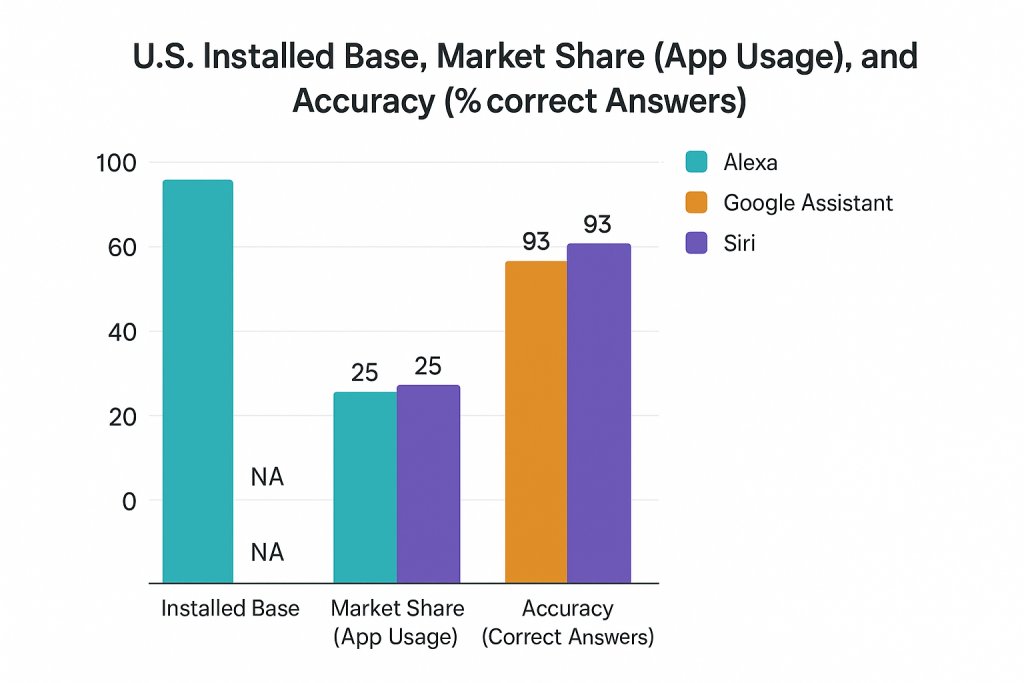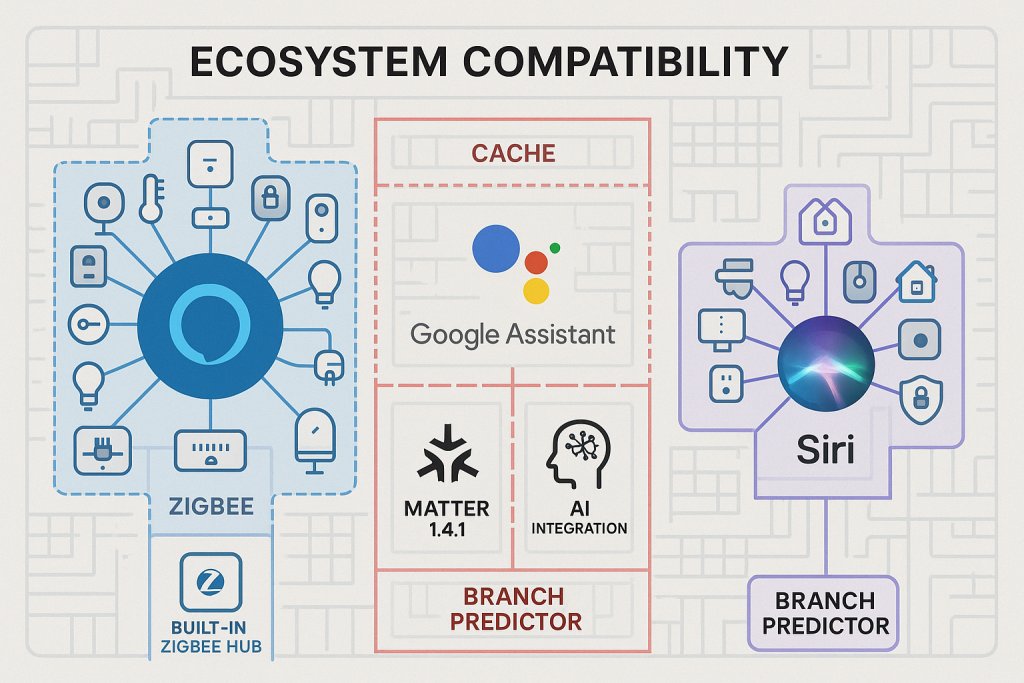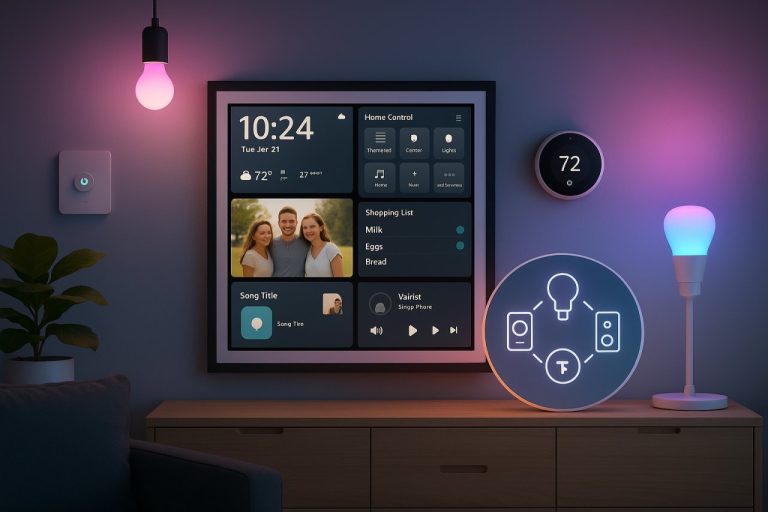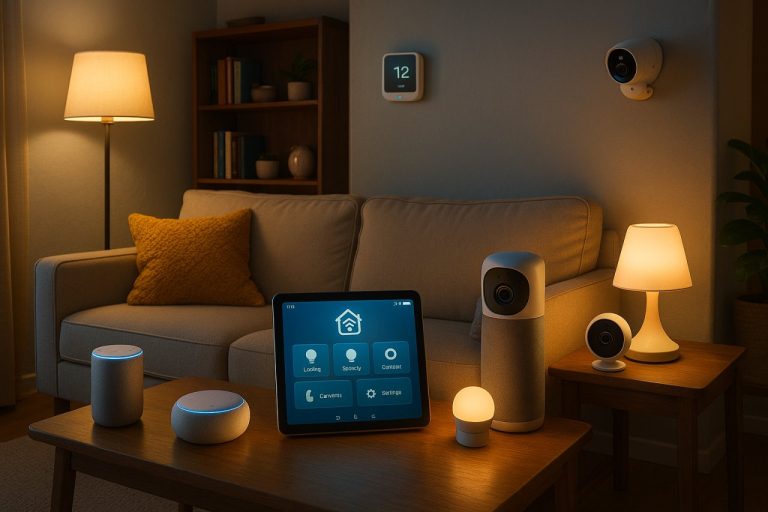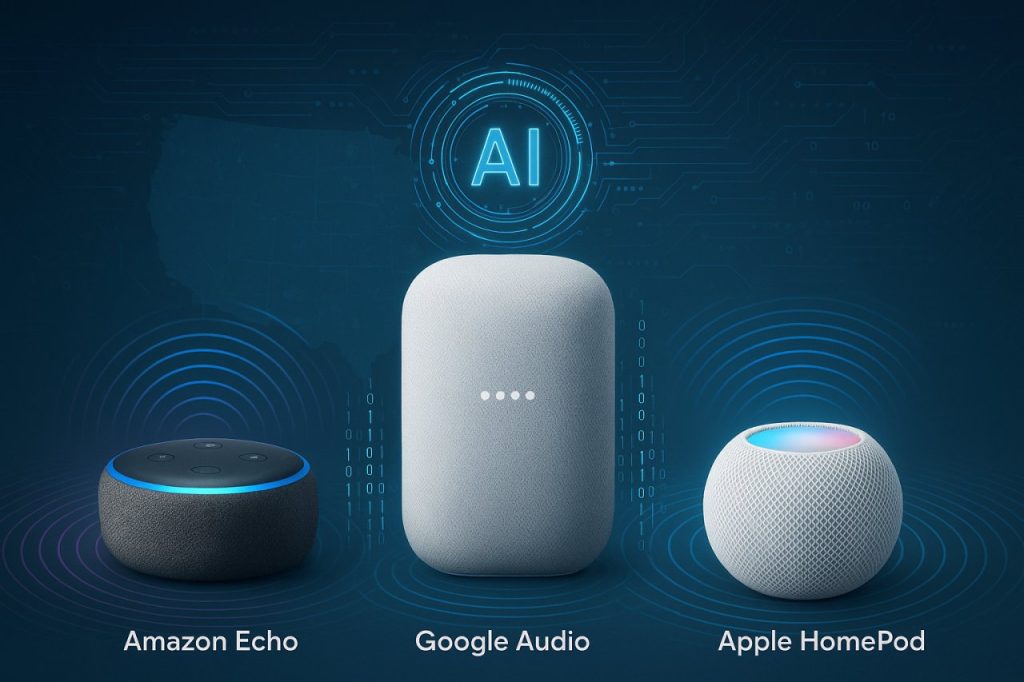
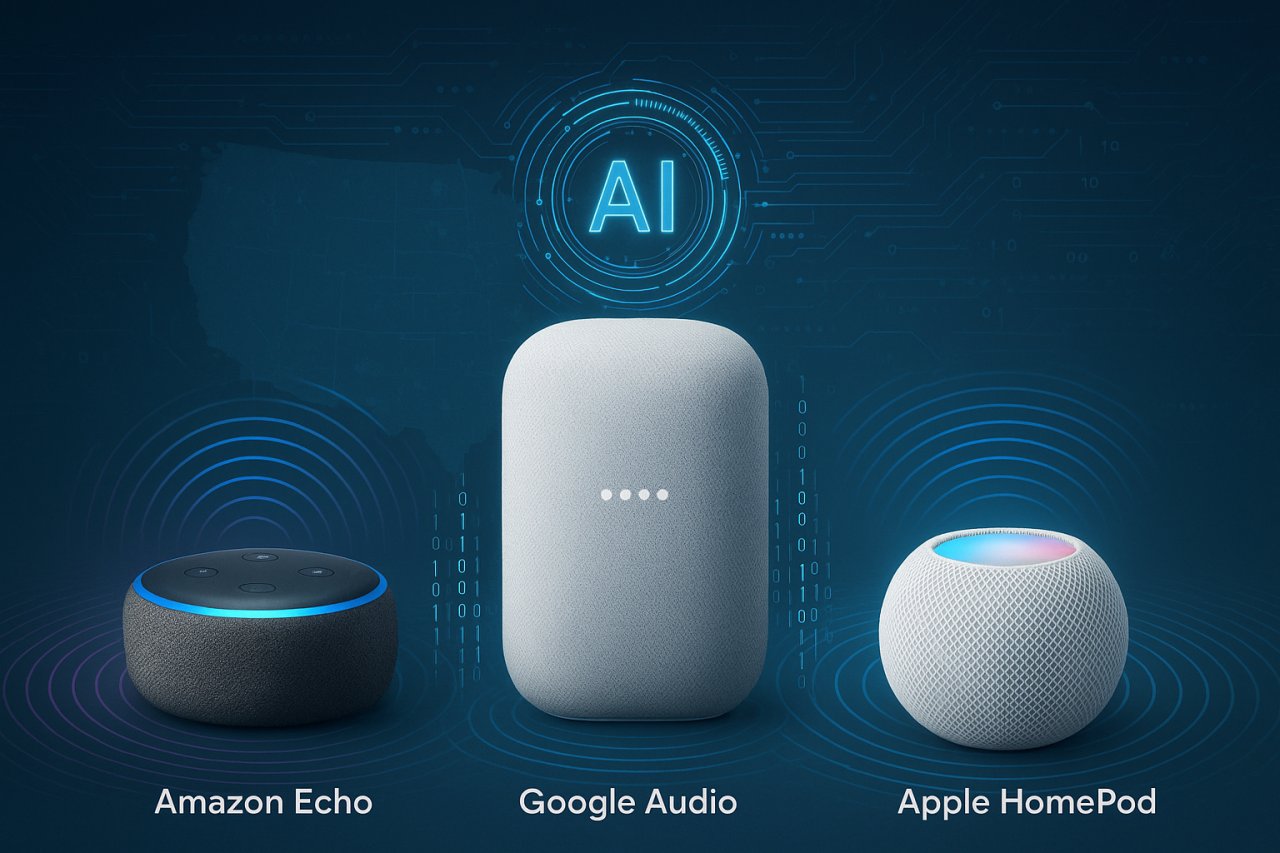
Voice Assistant Showdown: Alexa vs Google Assistant vs Siri in 2025
I’ve been comparing notes with fellow engineers and AI enthusiasts on the rapid evolution of voice assistants, and the landscape as of 2025 is surprisingly complex. Amazon’s Alexa+, Google’s Gemini, and Apple’s Siri each represent distinct trajectories in AI assistant development, shaped by ecosystem strategies, AI model sophistication, and privacy trade-offs. However, the story is far from settled—Apple’s Siri overhaul remains delayed, Google is pushing multimodal AI aggressively, and Alexa’s GPT-powered upgrade is still rolling out cautiously. This post aims to dissect the evidence and nuance behind these developments, avoiding the usual hype and oversimplification.
Market Landscape and Usage Statistics
At a high level, the voice assistant market continues its brisk growth, fueled by expanding smart home adoption and AI improvements. Here are some key figures that frame the competitive context:
- Market Size: Estimated at $7.21 billion in 2025, with a compound annual growth rate (CAGR) of 28.5% from 2024 to 2025[^1].
- Forecast: Expected to reach $22.85 billion by 2029, accelerating with a CAGR of 33.4%[^2].
- Smart Home Penetration: Approximately 63% of U.S. households now own at least one smart home device[^3].
- Installed Base (U.S.):
- Alexa smart speakers: 72 million units[^4].
- Google Home app users: 30% of households.
- Amazon Alexa app users: 25%.
- Apple HomeKit users: 20%[^3].
| Assistant | Installed Base (U.S.) | Market Share (App Usage) | Accuracy (Correct Answers) |
|---|---|---|---|
| Alexa | 72 million | 25% | 80% |
| Google Assistant | N/A (50,000+ devices) | 30% | 93% |
| Siri | N/A (~600 devices) | 20% | 83% |
Sources: The Business Research Company, SQ Magazine, BotPenguin
It’s worth noting that while Alexa leads in sheer installed base, Google Assistant edges ahead in accuracy, and Siri holds a respectable position despite a smaller ecosystem footprint. Does this distribution reflect ecosystem lock-in, or is it more about AI quality and user trust? Something to consider.
Technical Foundations and Ecosystem Compatibility
The ecosystem each assistant inhabits is arguably as important as the AI itself. To borrow a hardware analogy, think of these ecosystems as different CPU microarchitectures optimized for particular workloads and compatibility constraints.
- Alexa: Supports over 140,000 smart home devices, including a built-in Zigbee hub in devices like the Echo (4th Gen). Its extensive third-party skill library offers broad functionality but at the cost of some privacy concerns[^5].
- Google Assistant: Compatible with over 50,000 devices, Google lacks a built-in Zigbee hub but compensates with deep AI integration and Matter 1.4.1 support, enhancing interoperability[^6].
- Siri: Limited to about 600 HomeKit devices, Siri’s ecosystem is tightly controlled, emphasizing privacy-focused on-device processing and seamless integration with Apple hardware[^7].
The complexity of these ecosystems can be likened to cache hierarchies in CPUs—Alexa’s vast device support is like a large but sometimes inconsistent cache, Google’s AI integration is a sophisticated branch predictor optimizing for user intent, and Siri’s privacy-centric approach resembles a tightly coupled L1 cache with limited but fast access.
Smart Speaker and Device Hardware Overview
Surveying representative hardware offers tangible insight into how these ecosystems manifest.
| Device | Price (USD) | Rating (WIRED / TechRadar) | Features & Notes | Ecosystem |
|---|---|---|---|---|
| Amazon Echo Dot (5th Gen) | $50 | 7 / 4.5 | Compact, decent sound, built-in Zigbee hub, temperature sensor | Alexa |
| Google Nest Audio | $75-$99 | 8 / 4.5 | Pillow-like design, stereo pairing, Matter compatible | Google Assistant |
| Apple HomePod Mini | $99 | 6 / 4 | Good sound for size, privacy-focused, limited third-party support | Siri |
| Sonos Era 100 | $199 | 9 / 3.5 | Stereo sound, supports Alexa & AirPlay 2, no Google Assistant | Alexa, Apple |
| JBL Authentics 200 | $350 | 9 / N/A | Supports both Alexa & Google Assistant simultaneously | Alexa, Google |
I personally bought a Sonos Era 100 partly because I wanted decent sound quality without committing fully to Google’s ecosystem, and its lack of Google Assistant support was a surprise. (Yes, buying speakers based on box size and ecosystem quirks is a Wisconsin habit I’m not proud of.) The Echo Dot’s Zigbee hub remains a unique selling point for Alexa, especially for those with many Zigbee-compatible devices.
AI Intelligence and Conversational Capabilities
The core AI models powering these assistants have diverged significantly:
- Alexa+: Amazon’s GPT-powered upgrade, launched in early 2025, aims for more conversational, multi-turn dialogue and proactive task execution. However, its rollout is slow and limited to beta users[^8].
- Google Gemini: Rolling out since late 2024, Gemini replaces Google Assistant on Nest devices. It supports advanced multi-turn reasoning, multimodal inputs (text, voice, images), and proactive app interfacing[^9].
- Siri: Apple’s AI overhaul, internally dubbed “Siri LLM,” is delayed until 2026. Current Siri models have limited multi-step reasoning and rely heavily on on-device processing[^10].
Latency and Responsiveness Benchmarks
Latency remains a critical factor influencing perceived intelligence and usability. Here are average latencies measured in milliseconds (ms):
| Service | Average Latency (ms) |
|---|---|
| Retell AI | 780 |
| Synthflow | 420 |
| Twilio Voice | 950 |
| Alexa+ (est.) | ~850 (beta reports) |
| Google Gemini | ~600 (estimated) |
| Siri | ~400 (on-device) |
Lower latency generally correlates with better user experience, but on-device processing (as with Siri) trades off some AI complexity for speed and privacy. Alexa+’s GPT backend introduces latency overhead, which Amazon is reportedly optimizing.
Privacy and Data Handling Practices
Privacy is the elephant in the smart speaker room, with each assistant adopting distinct models:
- Alexa: Processes voice data primarily in the cloud. Past controversies include human review of recordings and fines for retaining children’s voice data[^11].
- Google Assistant: Offers opt-in recording storage but integrates deeply with Google’s app ecosystem, raising concerns about data aggregation and profiling[^12].
- Siri: Processes most requests on-device, minimizing data sent to servers. Research finds no confirmed profiling or data misuse[^13].
Cybersecurity expert Samantha Yu notes, “Trust in AI assistants hinges on transparency and robust security measures.” Amazon’s model trades some privacy for AI utility, while Apple bets heavily on privacy as a differentiator.
Smart Home Interoperability and the Matter Protocol
The Matter 1.4.1 release in May 2025 marks a significant step toward cross-brand smart home compatibility. It improves multi-admin support, energy management, and device setup via QR codes and NFC tags[^14].
- Alexa: Supports Matter and retains Zigbee hub functionality, easing device onboarding.
- Google Assistant: Strong Matter integration but no Zigbee hub.
- Siri: HomeKit devices are increasingly Matter-compatible, but the ecosystem remains smaller.
Mark Benson, chair of the Matter working group, emphasizes, “Consumers don’t care whose logo is on the box, they just want it to work together.” This sentiment echoes the Midwest pragmatism I grew up with—function over brand loyalty.
User Experience and Practical Considerations
In real-world use, voice recognition accuracy, multi-turn dialogue handling, and proactive task execution differ:
- Alexa: Extensive third-party skills but occasional misfires and latency hiccups.
- Google Assistant: Best at answering factual queries and handling complex dialogues.
- Siri: Smooth integration with Apple devices but limited in multi-step tasks and third-party support.
Anecdotally, I’ve found Siri’s voice recognition crisp but sometimes frustratingly literal, while Alexa’s broader skill set occasionally feels like a “jack of all trades, master of none.” Google Assistant’s proactive suggestions can be helpful but sometimes intrusive.
Third-Party Skills and Developer Ecosystem
Alexa boasts the largest skill library, with over 100,000 skills, enabling diverse integrations. Google leverages AI to interface with apps dynamically, reducing reliance on explicit skills. Siri’s third-party support remains limited, constrained by Apple’s privacy policies and ecosystem control.
Comparative Summary and Evidence-Driven Conclusions
- Alexa: Strengths in device compatibility and skill breadth; weaknesses in privacy and AI rollout speed.
- Google Assistant: Leading AI sophistication and accuracy; ecosystem less extensive than Alexa but growing.
- Siri: Strong privacy and device integration; lagging AI capabilities and limited third-party ecosystem.
“Google Assistant is, without a doubt, the best at providing answers!” — BotPenguin
“Siri wins by a big margin [for communication and voice commands].” — BotPenguin
The landscape is evolving rapidly, and these assessments may shift as Apple’s Siri overhaul arrives and Amazon’s Alexa+ matures.
Personal Reflections and Lessons Learned
Testing these assistants over the past year has been humbling. I underestimated how much ecosystem lock-in shapes user experience and how latency and privacy trade-offs affect adoption. My initial bias favored Alexa for its device count, but Google’s AI felt more responsive and accurate. Siri’s privacy-first stance resonates with my Midwest sensibilities but left me wanting more in conversational depth.
If you spot errors or have alternative takes, I’d appreciate hearing from you. These assistants are complex beasts, and no single narrative captures their full story.
Acknowledgements and Further Reading
Thanks to Sophia Wisdom and Mark Benson for insightful discussions and corrections. For those interested, the following sources informed this post:
- The Business Research Company — Voice Assistant Market Report
- WIRED — Smart Speaker Reviews
- TechRadar — Device Comparisons
- BotPenguin — Voice Assistant Accuracy Tests
- Northeastern University Research on Privacy
- Matter Protocol Specification 1.4.1
I encourage readers to explore archived materials on my blog and consider joining communities like the Recurse Center for deeper learning and discussion.
Postscript: Looking Ahead to Voice Assistant Evolution
Looking forward, AI emotional intelligence and improved multimodal inputs are expected to redefine assistant capabilities. Regulatory scrutiny around privacy and data handling will likely intensify, potentially reshaping ecosystem strategies. Apple’s delayed Siri overhaul may signal a cautious but privacy-conscious approach to AI integration.
Dr. Laura Hayes, AI Ethicist, predicts, “The AI of tomorrow will not just be smart—it’ll be emotionally intelligent.”
Stay tuned for updates as this fast-moving field unfolds.
If you have corrections or think I’m wrong, please let me know. As always, feedback is welcome.
